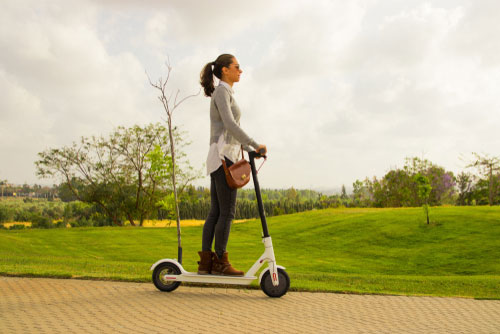Views: 10 Author: Anita RuiRui Publish Time: 2021-11-05 Origin: youmatter.world

For electric scooters, it’s a bit like electric vehicles. In the production phase, we must take into account all the energy consumed to extract raw materials, transform them, assemble them… This stage is important for all electronic devices because it is where the battery (that’s very polluting) is considered.
As for all means of transport, if we want to measure the environmental impact of electric scooters, it is necessary to analyze the 4 main phases of its life cycle. The first two are the phases of the vehicle’s manufacturing (then the engine and other components are assembled) and the energy production phase of the vehicle (how polluting is the energy that enables the vehicle to be driven). Then comes the use phase of the vehicle (when it is driven) and then the maintenance and end of life of the vehicle (how it is maintained and recycled or destroyed when it no longer works). In each of these phases, there are different environmental impacts.
Concerning the production of energy phase, again, electrical scooters have issues similar to the ones of electric cars. If the electricity is produced in an ecological way (renewable or decarbonated energy), then the environmental impact of this phase will be lower. On the other hand, if it is produced from fossil fuels burning (such as coal, oil or gas), the ecological impact, and especially the amount of released greenhouse gases, increases.
Next, the use phase is crucial for electric scooters and electric vehicles in general, because that’s where they have a real advantage. In fact, during the use phase, electric vehicles (including scooters) do not pollute. That’s right, there are no CO2 or other polluting emissions – only particles related to braking. This means that the longer electric scooters (or electric cars) are used, the more ecological advantage they get. However, it is also necessary to count on how they are recharged. Scooters, for example, need to be brought to a charging station and this transportation, usually done by trucks, can have a significant impact on the overall math.
Finally, recycling is also important because electric scooters are made of rare and potentially polluting materials. It is, therefore, necessary to take care of their batteries (and the vehicle cell itself), which makes them accountable for a great slice of pollution they can’t run away from – at least until the battery-recycling industry gets more developed.
